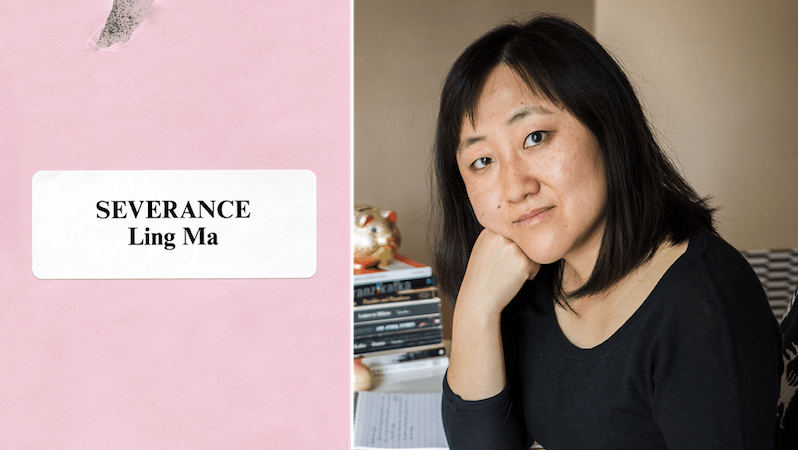
Congratulations to Ling Ma, whose 2018 dystopian novel, Severance, took home the 2019 Young Lions Fiction Award at a ceremony in the New York Public Library last night.
Established in 2001, the award is a $10,000 prize given each spring to a writer age 35 or younger for a novel or a collection of short stories. Each year, five young fiction writers are selected as finalists by a reading committee of Young Lions members, writers, editors, and librarians. A panel of judges then selects the winner.
Founded by Ethan Hawke, Jennifer Rudolph Walsh, Rick Moody, and Hannah McFarland, the Young Lions Award “recognizes the work of young authors and celebrates their accomplishments publicly, making a difference in their lives as they continue to build their careers.”
In Severance, a survivor of an apocalyptic plague maintains a blog about a decimated Manhattan before joining a motley group of survivors to search for a place to rebuild, a goal that is complicated by an unscrupulous group leader. The book beat out Nana Kwame Adjei-Brenyah’s Friday Black, Laura van den Berg’s The Third Hotel, Nick Drnaso’s Sabrina, and Akwaeke Emezi’s Freshwater to claim the top prize.
Congratulations to Ma, and to all the finalists!
*
“Ling Ma’s shocking and ferocious novel, Severance, is a play on the ‘Why I left New York’ theme, but it’s one you’ll actually want to read … a fierce debut from a writer with seemingly boundless imagination … Severance goes back and forth in time, contrasting Candace’s tedious office job with her travels across post-apocalyptic America. It’s a technique Ma uses to great effect—it’s jarring in a great way, making the horror of her new circumstances all the more intense … while Severance works beautifully as a horror novel, there’s much more to it than that. It’s a wicked satire of consumerism and work culture … Severance is the kind of satire that induces winces rather than laughs, but that doesn’t make it any less entertaining … [a] a stunning, audacious book with a fresh take.”
–Michael Schaub (NPR)
“Joining a pack of survivors led by a charismatic IT guy named Bob—’He was Goth when he felt like it,’ Ma writes, with the kind of sharp, offhand characterization that makes Severance a pleasure to read—Candace realizes that her survival may be more difficult with others than apart from them … movement between past and present…makes the novel work: As Candace’s future becomes increasingly uncertain, and her path more dangerous, we come to realize what she’s already lost—long before the pandemic hit. This feat of pacing and plot is also what makes Severance stand out among recent works of millennial fiction: The whole novel is, in a way, about how we are but an accretion of everything that’s ever happened to us … Tense and elegant, Ma’s writing…masterfully treads the line between genre fiction and literature. Part bildungsroman, part horror flick, Severance thrillingly morphs into a novel about self-worth, about the kinds of value we place on our own lives.”
–Larissa Pham (The Nation)
“Kmart realism has here taken on a fanatical glare, as if all the flickering bulbs in the supermarket aisle have been upgraded with halogen lighting … Ma is satiric about the workplace, in a way that’s less snobbish than Nell Zink but just as funny and imaginative … All the best metaphors in the book are cleverly crafted harbingers … Her dexterity in joking about capitalism rivals the skill of the great Richard Powers, who once imagined a company selling a product to cure a disease it created … There’s something so unimaginative and depressing and right about this book ending in a mall.”
–Kaitlin Phillips (Bookforum)

